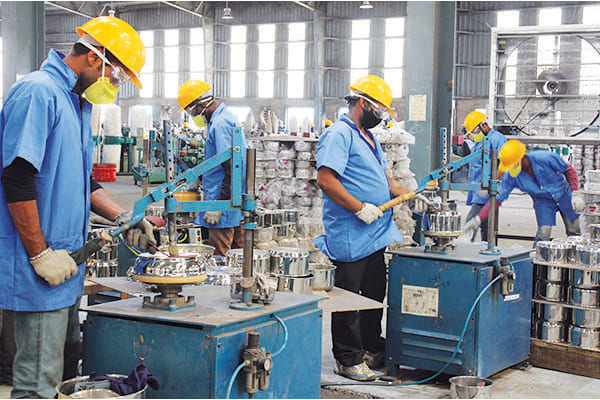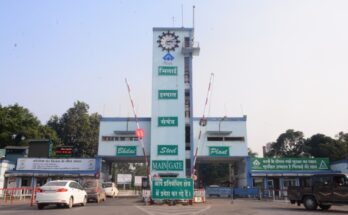
Team News Riveting
New Delhi, August 9
The COVID induced lockdown devastated the Micro, Small and Medium Enterprises (MSMEs) but still 91 per cent units managed to remain operative.
Union Minister for Micro, Small and Medium Enterprises Narayan Rane informed that Rajya Sabha today that the COVID-19 epidemic has temporarily affected various sectors including Micro, Small and Medium Enterprises in the country. Economic activity contracted due to the strict lockdown measures imposed by the Government. This contraction has also had impact on the MSME sector.
Studies have been conducted by National Small Industries Corporation (NSIC) and Khadi and Village Industries Commission (KVIC) to assess the impact of COVID-19 Pandemic on MSMEs including units set up under Prime Minister’s Employment Generation Programme (PMEGP). The Minister said the main findings of the online study conducted by NSIC to understand the operational capabilities and difficulties faced by the beneficiaries of NSIC schemes amid Covid-19 pandemic said that 91 per cent MSMEs were found to be functional.
Five most critical problems faced by MSMEs were identified as Liquidity (55 per cent units), Fresh Orders (17 per cent units), Labour (9 per cent units), Logistics (12 per cent units) and availability of Raw Material (8 per cent units).
The findings of the study conducted by KVIC concluded that 88 per cent of the beneficiaries of PMEGP scheme reported that they were negatively affected due to Covid-19 while the remaining 12% stated that they were benefitted during Covid-19 Pandemic. Among the 88 per cent who were affected, 57 per cent stated that their units were shut down for some time during this period, while 30 per cent reported drop in production and revenue.
Among the 12 per cent who had benefitted, 65 per cent stated that their business increased as they had units in retail and health sector and around 25 per cent stated that their units benefitted as they were dealing with essential commodities or services. On the question of regular payment of salaries to the employees, around 46.60 per cent respondents stated that they had paid the salaries in full, 42.54 per cent reported to have partially paid and 10.86 per cent reported to have not paid salary for some time during this period.
Majority of the beneficiaries expressed the need for additional financial support, relaxation of waiver of interest and marketing support for their products.



